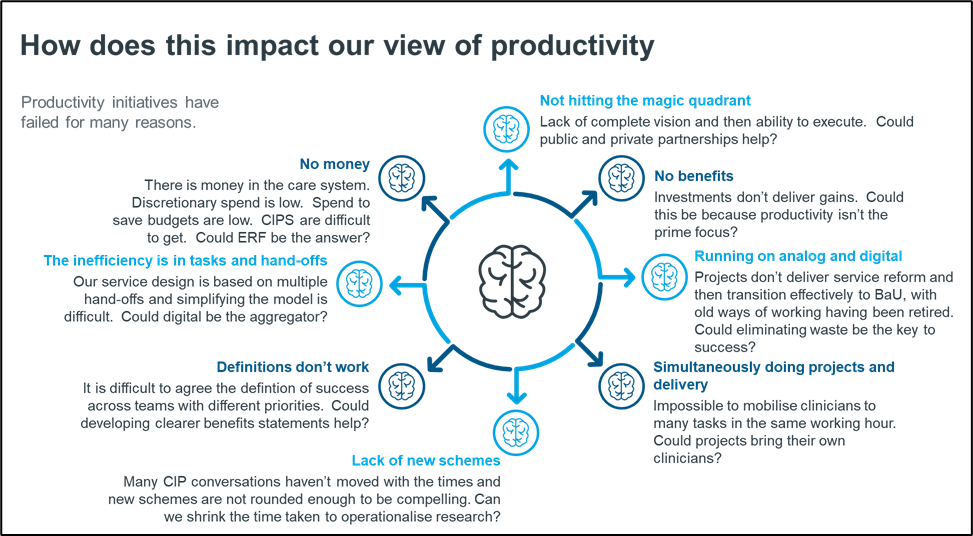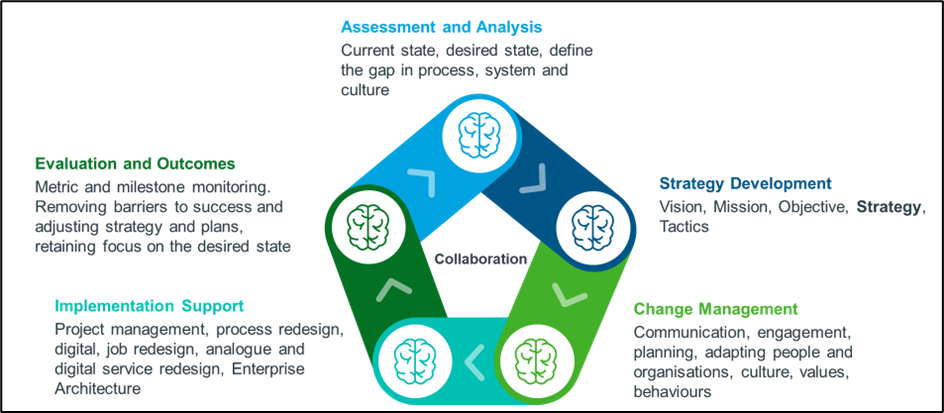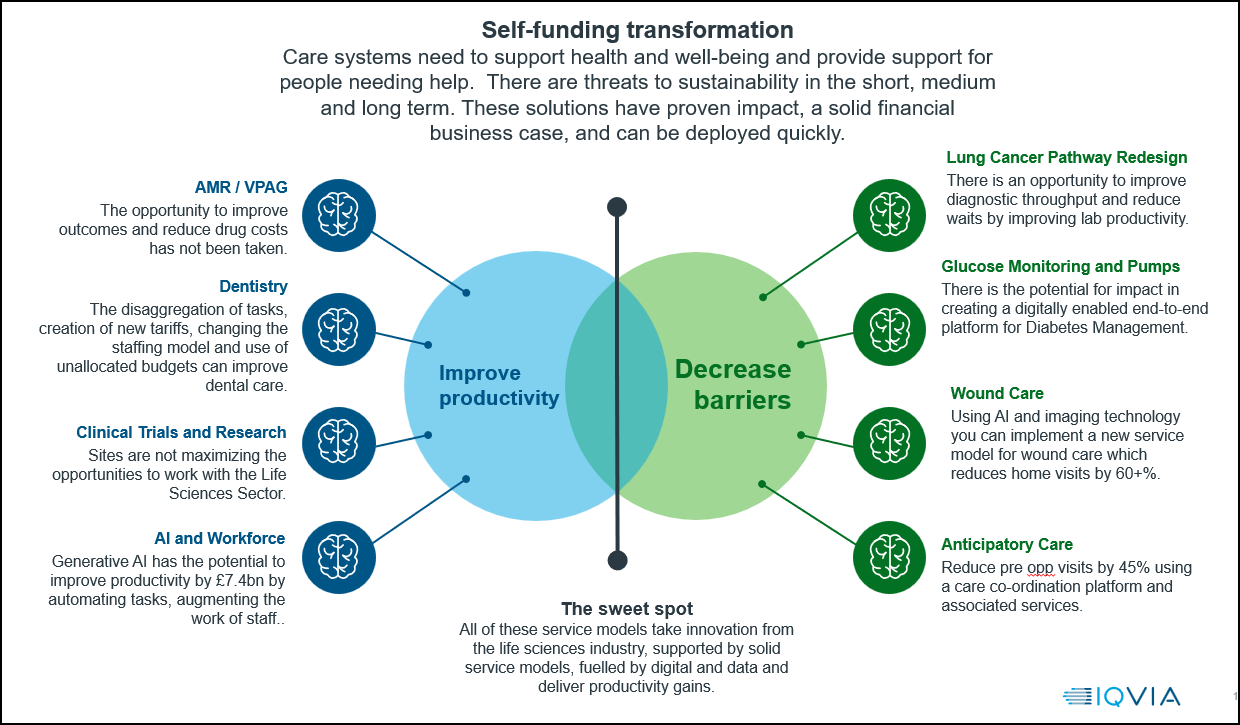Fueling transformation to increase value and improve patient outcomes
Our care system is still trying to define productivity. In the widest sense, it is about social value, which is difficult to define and measure. Like many industries, the care system in the UK has focused on managing and measuring defined processes. An example would be the processes that enable patients to flow across services, so that they receive the care they need in the most efficient way. Investment is being poured into improving care system productivity, and whilst there is an argument for widening the discussion to look more at social value, there is scope for immediate work that can have a quick impact on staff and patients. In this blog, Paul Henderson, Director of Consulting, UK&I Healthcare & Government, IQVIA, examines why these improvements are not being embraced and suggests a shortlist of innovations that could have an immediate measurable impact.
The Better Care Fund, the Elective Recovery Fund, the Pathway Improvement Fund, and the Frontline Digitisation Fund are all sources of investment that the NHS can draw upon to improve productivity. The government recognises that the care system has made great progress in patient appointments and improving outcomes but is demanding more throughput of patients to cope with rising demand. These gains are being sought at the same time due to workforce challenges, the patient's experience of the NHS, life expectancy has plateaued, the number of years we will live in poor health is rising, and many parts of our society suffer from inequity and deprivation.
But we can focus on using this investment to improve the maintenance of well-being closer to home through innovative medicines and remote monitoring. We can improve access to services by diversifying and digitising our service models, and we can provide better support as people move out of NHS care – although funding Social Care remains a challenge. So why don't we do it? The answer is that we do, but not universally because it is difficult.
Here are some of the challenges:

You could argue that all these brakes on productivity have the same issue at the heart. We are not doing transformation as well as we could as it currently is not at the heart of the productivity agenda, as we are less focused on delivering improvements to 'Business as Usual' and more focused on implementation. Whether that be a new piece of technology or introducing a new role into an organisation.
In this context, we hesitate to suggest innovations from the Life Sciences industry which can improve productivity, for fear of layering innovation upon innovation and ultimately risking compounding the productivity problem. Here is a checklist of issues that need to be considered to enable the risks above to be mitigated.

The key is Change Management. If you can foster a spirit of collaboration, based on shared values and ways of working, then you have a greater chance of landing sustainable, productive innovations.
There are some examples of solutions that have been deployed in the UK care sector, which have supporting playbooks that enable the change management to happen, that have not yet been widely adopted. If we get it right, innovation has the power to fuel productivity at scale. Getting it right means overcoming the barriers to deployment that we showed in our figure above and implementing effective transformation schemes. There are some common features of the value proposition underpinning each of these transformation schemes.

The common factors are that each has a clear clinical purpose and social value, so obtaining buy-in from staff and the public should not be difficult. Being pragmatic about how transformation schemes get off the ground, a clear and cashable return on investment can be shown. We can see how these schemes help manage demand for services and do not add tasks into busy clinicians' to-do lists, so they differentiate from the purely technical and technology-led transformation schemes which are not yet delivering benefits at scale. There is much to love in each of these schemes.
You may be doing some of these things already, you may have cracked the change management challenge, and you may be delivering benefits. If you are not and would like to understand more, please contact paul.henderson@IQVIA.com for more details.








